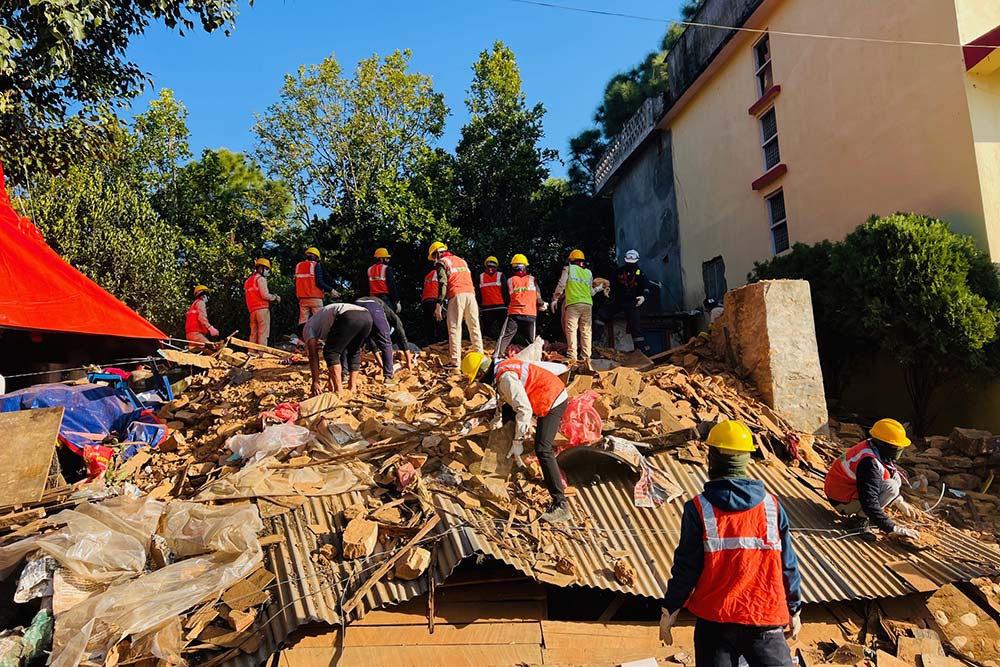
A few months back, Nepal Rastra Bank (NRB), the central regulatory and monetary authority, declared trading and transactions on crypto currencies ‘illegal’ in the country. This occurred when the Metropolitan Police Kathmandu had taken Bitcoin traders into custody and sought NRB’s suggestion on filing the case against them.
The central regulatory and monetary authority has banned trading and transactions of Bitcoin owing to the inherent risks associated with it and the possibility of illegal outward fund flow from the country. It also indicated that this could boost money laundering within the country.
However Bitcoin crypto currency, with highest market capitalization in the derivative market, has created a major shift in the payment system of the world economy. Price per Bitcoin is around $20,000 in derivative market trading. Crypto currencies are invented as a mode of electronic payment system, however speculators have portrayed Bitcoin as digital gold. There are now other crypto currencies in use, but Bitcoin has been gaining popularity as it offers secure and low-cost user-to-consumer payment without the need of bank intervention or other centralised payment systems.
No issuer or controlling authority
Bitcoin was founded in 2008 by a prior unknown person named Satoshi Nakamoto. Bitcoin is not a legal tender of any central bank and there is no fractional reserve system controlling the supply of Bitcoins. All of Bitcoins in the world are held by users of its network in their own individual Bitcoin wallet. It is a ‘virtual currency’ unlike physical currency like dollars, euros or rupees,etc. Bitcoin has been considered a volatile asset and comes with its own set of risks for investors. Rich people across the world have been using it as a safe haven investment often as part of their tax planning or to hide their earnings. Bitcoin prices could further rise or it could also crash, 10% value movement – up or down- is common in derivative market.Bitcoin mining in Nepal
Database of Bitcoin in use is known as blockchain and any person in the world can mine Bitcoin through use of its mining software. When a new block is created, it is rewarded with 12.5 Bitcoins which happens every 10 minutes and the coins can only be used when the user has 90 Bitcoins through mining process. Many people and specialised companies across the world are involved in Bitcoin mining. Recently, Central Bureu of Investigation under the Nepal Police seized equipments and computers that are used for Bitcoin mining from Dolakha district of Nepal. The mining system generates new Bitcoins automatically, self-regulating the process speed so that there is no danger of circumventing the rules and speeding up the process of creating new Bitcoins with larger investments in extraction hardware and more for electricity bills. The fee for building blocks will slow down in 2020, slowing every four years, while the number of generated Bitcoins will not reach 21 million, which is the maximum number that can be generated from the current system. Over 16 million Bitcoin (76% of the total) are already set up in 2017. After seizing the equipments, Dolakha Police also conducted investigation on the digital payment service providers suspecting that they are operating a Bitcoin wallet, however, the police could not generate evidence that the digital service providers were operating such wallets which NRB has termed ‘illegal’ in Nepal.Nepal is making money
Though Bitcoin is illegal in the country, however Nepalis are involved in Bitcoin mining and trading in the world derivative markets through their friends and relatives outside. NRB maintains that Bitcoin investment by Nepalis is having adverse impact on remittances. However, the central bank does not have exact data and information on Nepali Bitcoin investments. Pushkar Karki, Deputy Inspector General of the Central Investigation Bureau of Nepal Police, has said that Nepali businesses and corporate houses might also be making investments in Bitcoin. Bitcoin is also considered a financial instrument for ‘hedging’ the risk factor in other portfolio investments like real estate, gold, stock market, global currencies like USD, Pound, EUR among others as there are speculations that Bitcoin price will further rise in 2018.Future of Bitcoin
Bitcoin prices had gradually tumbled in 2013 because of repeated cyber heists and wide spread rumors about other crypto currencies surpassing it. However, since the government of Japan has recognised the Bitcoin Exchange officially from September 2017, it is once again seen as a valuable investment. There are Bitcoin ATMs in many countries through which investors can purchase Bitcoin from the currency issued by their central bank. It can also be converted back into local currency as per prevailing exchange rates on the internet. Use of Bitcoin as a payment system has increased substantially in neighbouring India during and after demonetization of INR 500 and 1,000 notes in November 2016. Many believe that the Bitcoin can be an effective means of electronic payment system, yet it cannot replace currency issued by central banks. One factor is that the number of Bitcoins is limited, however central banks can issue legal tender as per availability of their foreign exchange reserves and reserves of gold. Yubraj Khatiwada, former governor of NRB, has said that there no regulation on digital currency in Nepal yet, elaborating, “There is reservation on Bitcoin globally from the perspective of regulation, monitoring and transparency. Bitcoin trading and accepting it as mode of payment will have significant risks in Nepali economy as the decentralised virtual currency will help to thrive money laundering activities and help outward financial flows from the developing countries like Nepal.”
Published Date: January 18, 2018, 12:00 am
Post Comment
E-Magazine

Click Here To Read Full Issue
RELATED Feature




